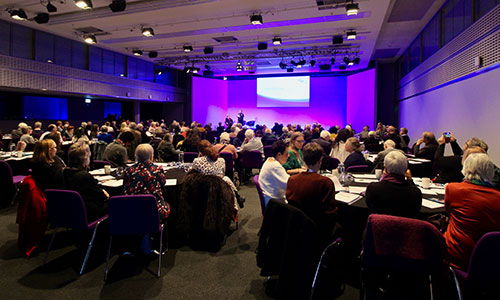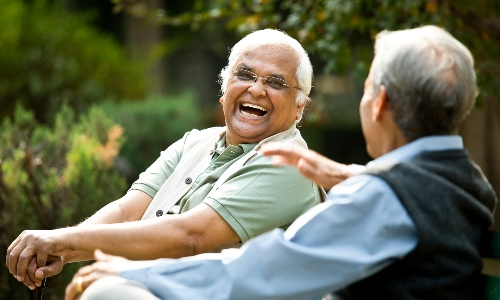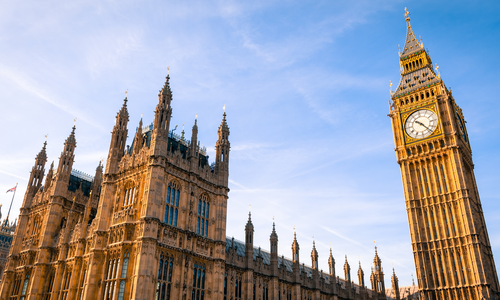We know there will be a General Election sometime soon. But what do older people want from the next Government, whatever end of the political spectrum it represents, to help make their lives better?
This is the question we’ve been exploring in recent months, together with older people who have kindly given their time to engage with us face to face, over the phone and online, so we can be sure that what we ask of all the political parties really does reflect their priorities.
We estimate that around 20,000 older people have supported this work, including some who agreed to be filmed discussing the issues that matter most to them - and we will be sharing the resulting videos widely soon.
We have set out what we heard from older people and what this means for potential policies in a new report called ‘A blueprint for improving the lives of older people’. We hope that as well as informing MP candidates about older people’s priorities, this document will also help the next Government when it plans its programme in office.
So what did older people tell us their priorities are at this election? When we carried out some nationally representative polling several top priorities clearly emerged.
1. Keep the Triple Lock
The first priority was about income security and a strong desire to ‘keep the Triple Lock’ through the next Parliament: that is, the Government policy that means that each year, the state pension is guaranteed to increase by the greatest of the rise in prices, the rise in wages, or 2.5%.
2. An NHS you can access and rely on being there for you
Several of the priorities we heard about related to the NHS, with equally high numbers prioritising action to help them more easily access their GP and to reduce long waiting lists. From what we hear from older people, for many their confidence in the NHS has been shaken. This really matters to them, perhaps especially those living on their own.
3. Reforming social care
As we expected, we frequently heard how important it is that the next Government gets on with reforming social care after the repeated false starts of recent years. We were also told about how much store many place on energy bills being kept down; on their free bus pass; and on being able to access essential services – including banking and the NHS – offline as well as online. This is a particular bugbear for those who don’t use computers.
4. Ensuring older people’s voices continue to be heard
It was interesting to hear lots of older people referring to wanting their views and interests to be taken more into account when policy decisions are taken that affect them, and for their voices to be heard more loudly in Government. Age UK agrees and that’s why we are supporting a campaign for an Older People’s Commissioner role to be established in England, joining those already in place in Wales and Northern Ireland.
We would like to see a Minister for Older People appointed in Westminster too, to help join up policy for older people more effectively across different Government departments. In a similar way, we would like the next government to lead the charge globally for a UN Convention on the Rights of Older Persons, to help people lead better later lives in low and middle income countries as well as here.
5. Getting to grips with an ageing population
At Age UK, we want the next Government to really grasp the challenges and opportunities of an ageing population, so everyone has the chance to keep contributing as they age and can look ahead with confidence, not fear. We hope the 52 policy recommendations in our report genuinely constitute a blueprint in this respect, and whenever the election happens we will be doing everything we can – with your help too, I hope – to get these points across to our future political representatives.
Blueprint for improving the lives of older people
The challenges facing older people and our policy recommendations for how the next Government can tackle them.





